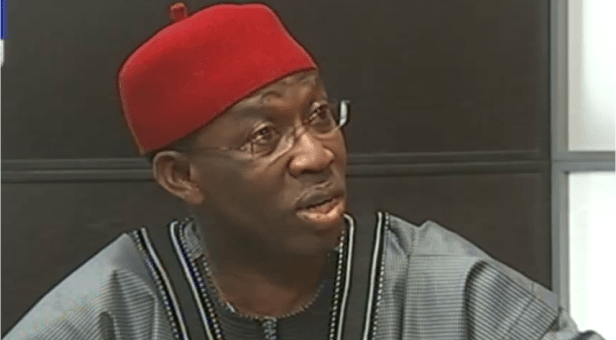Headlines
UN Warns of ‘Catastrophe’ As Sudan War Rages On

Fierce fighting between rival generals raged on in Sudan Tuesday despite the latest truce, as warnings multiplied of the potential for a “catastrophic” humanitarian crisis with hundreds of thousands of refugees.
Many more cannot afford the arduous journey to Sudan’s borders, and have been forced to hole up inside the city of five million people with dwindling supplies of food, water and electricity.
“We are hearing some sporadic gunfire, the roaring of a warplane and the anti-aircraft fire at it,” said one resident of south Khartoum.
In a Monday briefing, the top United Nations aid official in Sudan, Abdou Dieng, warned that the situation was turning into “a full-blown catastrophe”.
Kenyan President William Ruto said the conflict had reached “catastrophic levels” with the warring generals declining “to heed the calls by the Inter-Governmental Authority on Development (IGAD), the African Union and the international community to cease fire.”
In a virtual meeting with senior UN officials, Ruto said it was imperative to find ways to provide humanitarian relief “with or without a ceasefire”.
Burhan and Daglo, who fell out after carrying out a 2021 military coup which derailed Sudan’s transition to elective civilian rule, have flouted multiple ceasefires, the latest a 72-hour extension agreed late on Sunday.
Foreign governments have scrambled to evacuate their citizens. Over the past 10 days, thousands of foreigners have been brought to safety by air or sea in operations that are now winding down.
Russia’s armed forces said on Tuesday they were evacuating more than 200 people from Sudan on four military transport planes.
Nearly 500 people arrived in the Saudi port of Jeddah on Monday aboard two vessels, one a US Navy ship, the other Saudi.
– Relief trickles in –
Top UN humanitarian official Martin Griffiths arrived in Nairobi on Monday on a mission to find ways to bring relief to the millions of civilians trapped inside Sudan.
“The situation unfolding there (in Sudan) since April 15 is catastrophic,” he said on Twitter.
Sudan’s turmoil has seen hospitals shelled, humanitarian facilities looted and foreign aid groups forced to suspend most of their operations.
At least 528 have been killed and some 4,600 wounded in the violence, according to the health ministry.
The United Nations’ refugee agency, UNHCR, said it was bracing for “the possibility that over 800,000 people may flee the fighting in Sudan for neighbouring countries”.
The World Health Organization warned that the fighting was pushing Sudan’s already ailing health sector toward “disaster” with only 16 percent of health facilities in Khartoum still functioning.
The WHO said that it had delivered six containers of medical equipment to Port Sudan on the Red Sea coast, including supplies for treating trauma injuries and severe acute malnutrition. It had also distributed scarce fuel to hospitals which rely on generators for power.
– Darfur chaos –
Beyond Khartoum, lawlessness has engulfed the West Darfur state capital, El Geneina, where at least 96 people have been reported killed since the start of the fighting, according to UN figures.
More than 330,000 people have been displaced, over 70 percent of them in West and South Darfur states, according to the International Organization for Migration.
“The health system has completely collapsed in Geneina,” the doctors’ union said, adding that looting of clinics and camps for the displaced had forced several agencies to carry out “emergency evacuations” for their teams.
On Friday, Doctors Without Borders said the fighting had forced it to halt “almost all activities in West Darfur”.
The Darfur region is still scarred by a war that erupted in 2003 when then hardline president Omar al-Bashir unleashed the Janjaweed militia, mainly recruited from Arab pastoralist tribes, against ethnic-minority rebels.
The scorched-earth campaign left at least 300,000 people dead and close to 2.5 million displaced, according to UN figures.
The Janjaweed — which rights groups have accused of atrocities in Darfur — later evolved into the RSF, which was formally created in 2013.
AFP
Headlines
Your Presidential Ambition Dead on Arrival, Presidency Mocks Atiku As PDP Stalwarts Defect to APC

The Presidency has delivered a jab at former Vice President Atiku Abubakar, declaring his 2027 presidential ambition and coalition-building efforts “dead on arrival” following the defection of Delta State Governor Sheriff Oborevwori and other top PDP figures to the ruling All Progressives Congress (APC).
In separate posts on X, Presidential aides Bayo Onanuga and Tunde Rahman mocked Atiku’s attempts to rally opposition forces, saying recent developments show his coalition is crumbling before it even takes off.
Onanuga, Special Adviser to the President on Information and Strategy, wrote: “Atiku’s political future looks bleak. The coalition that he, El-Rufai, Babachir, and new member Baba-Ahmed are cobbling together has disintegrated. Potential allies, including former running mate Ifeanyi Okowa and defunct CPC members, are giving his leprous group a wide berth. Atiku is a loser again.”
Tunde Rahman, Senior Special Assistant to the President on Media and Publicity, posted earlier in the day: “Things are really getting perilous and the future looks so bleak for former Vice President Atiku Abubakar’s coalition. After the PDP governors washed their hands clean of any such coalition plan, the defunct CPC wing he is also counting on has proffered support for President Tinubu.
Today (Wednesday), he got his biggest shocker ever. His 2023 election running mate, former Delta State governor Ifeanyi Okowa, and Okowa’s successor, Governor Sheriff Oborevwori, dumped the sinking PDP ship and hopped aboard the APC plane, and by inference, crossed over to the PBAT side.
Indeed, the counting of PDP governors crossing over to APC has begun. Isn’t Atiku’s coalition dead on arrival?”
The coordinated remarks followed a major political realignment in Delta State, where the governor, his predecessor, former Governor Ifeanyi Okowa, and the entire PDP state structure defected to the APC – an event seen as a significant blow to Atiku, who has been working to form a broad opposition alliance against President Bola Tinubu ahead of the 2027 elections.
Okowa was Atiku’s running mate in the 2023 presidential election under the Peoples Democratic Party (PDP).
Atiku has yet to respond to the defection or the presidential aides’ comments, though acting national chairman Iliya Damagum earlier described the Delta exit as “unfortunate,” while insisting that the party remains focused and resilient.
Headlines
Lagos Raises Alarm As 31, 596 Public School Students Fail WASSCE

The Lagos State Government has disclosed that a staggering 31,596 public school students failed the 2024 West African Senior School Certificate Examination (WASSCE), raising alarm across its education sector.
The figures, unveiled by the Lagos Commissioner for Basic and Secondary Education, Jamiu Tolani Alli-Balogun, during a ministerial press briefing on Thursday in Alausa, Ikeja, showed that 54.3% of the 58,188 students from public schools who sat for the exams failed.
The commissioner said the pass rate was 45.7%.
The failure rate comes despite the government’s significant financial backing — a whopping N1.577 billion was paid on behalf of the students to cover WAEC fees.
“Suffice to say that the sum of N1,577,794,000 (One Billion, Five Hundred and Seventy-Seven Million, Seven Hundred and Ninety-Four Thousand Naira) only was paid by the State Government as examination fees for 58,188 students who were captured for year 2024 WASSCE,” Alli-Balogun announced.
In a bid to tighten accountability and avoid wastage, the Commissioner disclosed that biometric and image registration was carried out to accurately determine eligible students for government sponsorship for the 2025 WASSCE.
“The exercise successfully captured and registered 56,134 students as bona-fide beneficiaries of the Lagos State Government’s sponsorship for the examination,” he added.
However, the Lagos State Government rolled out a bold educational intervention – the Eko Learners’ Support Programme for WASSCE and NECO Candidates – aimed at reversing the tide of academic failure in the state’s public schools.
Launched on January 14, 2025, the initiative is part of a broader commitment by the Ministry of Basic and Secondary Education to equip Lagos students with tools for success.
“This forward-thinking initiative was designed to support and empower young scholars in attestation of the Ministry’s commitment at advancing interest and management of the educational system in Lagos State,” Alli-Balogun stated.
He said with a vision to broadcast 320 lessons across 10 key subjects, including English, Mathematics, Physics, Chemistry, Biology, Economics, Government, History, Literature-in-English, and Yoruba, the programme aims to bring world-class tutoring directly into students’ homes.
Thw commissioner said each 30-minute episode would air on Lagos Television (LTV) and be archived across major platforms like YouTube, Facebook, Instagram, and X (formerly Twitter), creating a digital learning library accessible to every student.
“It is a supportive eco-system that fosters academic achievement, creativity, critical thinking… every student deserves the opportunity to attain their full potential, regardless of their background or socio-economic status,” the Commissioner declared passionately.
Alli-Balogun urged students, especially those in boarding schools, to seize this opportunity.
“It is on this note that I urge and encourage students’, more importantly, students in our boarding schools, to take full advantage of this initiative, as education is a lifelong journey,” he said.
Headlines
Former Delta Gov, Ifeanyi Okowa, Defects to APC

Former Governor of Delta State, Peoples Democratic Party (PDP) presidential running mate in the 2023 election, Senator Ifeanyi Okowa, has dumped the PDP for the All Progressives Congress (APC).
Okowa confirmed the news of his defection to ARISE NEWS on Wednesday following the announcement of the current governor of Delta State, Sheriff Oborevwori, who also defected from the PDP to the APC on Wednesday.
The development was disclosed by Senator James Manager after a six-hour meeting at Government House, Asaba.
“All PDP members in the state, including the governor, former Governor Okowa, the Speaker, the state party chairman, all the local government chairmen and others, have agreed to move to the APC,” Manager stated. “We cannot continue to be in a sinking boat.”
Delta State Commissioner for Information, Mr Aniagwu Charles, officially confirmed the sweeping political shift, attributing the decision to the need for renewed direction and enhanced governance in the state.
“There is a need for us to adjust our drinking patterns. And in adjusting that drinking pattern, we needed to make a decision that would further help to cement the development in our state,” he said.
Aniagwu added that the move aimed to sustain progress in law, security, and welfare, likening the PDP to a “palm wine whose taste has changed,” necessitating a change in “drinking party”.
He further indicated that the defection was unanimously agreed upon by key PDP leaders and stakeholders in the state, with a formal public declaration expected on Monday.
“By the grace of God, on Monday next week, we will be able to make a very big statement confirming that we are moving into the APC,” he said.
The mass defection represents a dramatic realignment in Delta State’s political landscape and could significantly alter party dynamics in the broader South-South region, historically a PDP stronghold.
Okowa will be received on Monday by Vice President Kashim Shettima alongside Governor Oborevwori.
AriseNews






